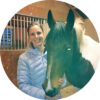The concept of neurodiversity celebrates and defines atypical neurological development as a normal human difference, typical of biological diversity within a population. People with neurodivergent conditions, such as autism spectrum condition (ASC), attention deficit hyperactivity disorder (ADHD), dyspraxia, dyslexia, dyscalculia and Tourette’s syndrome, demonstrate differences in brain function, learning style and information processing. Such differences can present an individual with difficulties in a world (or workplace) largely set up and run by neurotypical people. Awareness of such differences and the provision of reasonable adjustments is paramount in allowing neurodivergent people to thrive and excel to their full potential. This article will discuss how such adjustments can be designed and implemented using an autistic employee as an example.
Increasing awareness of neurodiversity
A key aspect to any reasonable workplace adjustments being successful and the employee feeling comfortable to be themselves is raising awareness of neurodiversity, and the possible differences in communication and executive functioning within the whole team. The understanding of neurodivergent conditions still tends to be very superficial and workplace training in neurodiversity or using resources such as the MMI Neurodiversity Hub can be a useful starting place.
Workplace neurodiversity training for the whole team may increase awareness, decrease fear of disclosure and initiate further conversation
Discussing reasonable adjustments with a staff member may be initiated by a neurodivergent individual who is experiencing difficulties or due to complaints from others in the team about their behaviour. If the latter, the discussion must be handled sensitively and from a place of identifying how the person can be helped rather than chastised. If a manager suspects that a staff member may be neurodivergent, but they have not disclosed this information (or even may be unaware), workplace neurodiversity training for the whole team may increase awareness, decrease fear of disclosure and initiate further conversation.
What are reasonable adjustments?
Employers are bound by the Equality Act 2010 to provide reasonable adjustments within the workplace for employees with protected characteristics such as neurodivergence. Reasonable adjustments are changes an employer makes to remove or reduce a disadvantage related to an employee’s disability. These could include physical changes to the workplace, changing someone’s working arrangements, finding a different way to do something or providing equipment, services or support. Specific examples include a designated desk space rather than hot desking, provision of noise cancelling headphones, changing working patterns, distributing tasks differently across a team and provision of documents in an accessible format.
Reasonable adjustments are specific to an individual person rather than generic to a condition and therefore can only be identified following discussion with the person
Reasonable adjustments are specific to an individual person rather than generic to a condition and therefore can only be identified following discussion with the person. The employer is responsible for paying for any reasonable adjustments although some individuals may be eligible for help from the government Access to Work programme. Reasonable adjustments should be periodically reviewed to ensure that they are still relevant and adequate.
Identifying strengths and weaknesses
Using a strengths and weaknesses framework can be a more fruitful way to explore what adjustments a person may find helpful, rather than simply asking what people need. All individuals, regardless of neurodivergence, have inherent strengths and weaknesses. Allowing individuals to play to their strengths and minimising challenges has obvious benefits. For example, autistic individuals may have excellent focus, attention to detail, good working memory, efficiency and organisation, loyalty and integrity but also have high levels of anxiety, particularly around change or lack of routine, rigidity of thinking, sensory sensitivities and differences in social communication.

While some people consider autism along a linear, horizontal scale from mild at one end to severe at the other, autistic individuals have a profile more like a circular wheel (Figure 1). Each “spoke” of the wheel represents an autistic trait with the black dots depicting where an individual lies for that characteristic. This means that while an individual may be hardly affected in one category (eg communication), they may rate highly in another area (eg sensory processing) such that they find bright lights or loud noise extremely distressing. Asking an individual to rate themselves on a wheel can be useful to identify which areas are most important to address first.
While some people consider autism along a linear, horizontal scale from mild at one end to severe at the other, autistic individuals have a profile more like a circular wheel
It may also be useful to consider social communication and executive functioning differences. Executive functioning covers cognitive skills that “help you get things done”, including impulse control, emotional control, flexible thinking, working memory, self-monitoring, planning and prioritising, task initiation and organisation. Asking people to rate themselves on a scale of 0 to 10 in each of these areas can be useful to help people think about their cognitive functioning. Neurodivergent people often have “spiky” executive functioning profiles with high functioning in some areas and lower in others (Figure 2), which can help identify areas where support may be helpful.

Mediation is important where conflict has occurred to allow continued team working and the psychological safety of individuals. Group exploration of executive profiles can be a useful way to explore differing cognitive functioning and initiate a better understanding of each other. Such exercises are commonly performed in workplace neurodiversity training sessions.
Final thoughts
Allowing individuals to express themselves freely as their authentic self is a basic human right. Reasonable adjustments remove barriers to people being able to perform at their best and most are small, simple to action and need not be expensive or cumbersome. Employers that accept employee individuality and how that is expressed will not only gain productivity but also allow employees to flourish.
| Top tips 1. Educate yourself: read about neurodivergent conditions 2. Regard every person as an individual: for example, just because you have met one autistic person, it does not mean their experience will be the same as another autistic person. Don’t be afraid to ask the person about their experiences 3. Ask the person about their strengths and weaknesses and, importantly, what they are finding difficult. Do they have an idea of what would help? 4. Consider workplace neurodiversity training to educate all members of the team |
| The author would like to thank their colleague, Brad Hill, for the support in carrying out the research and for proofing the article. |







